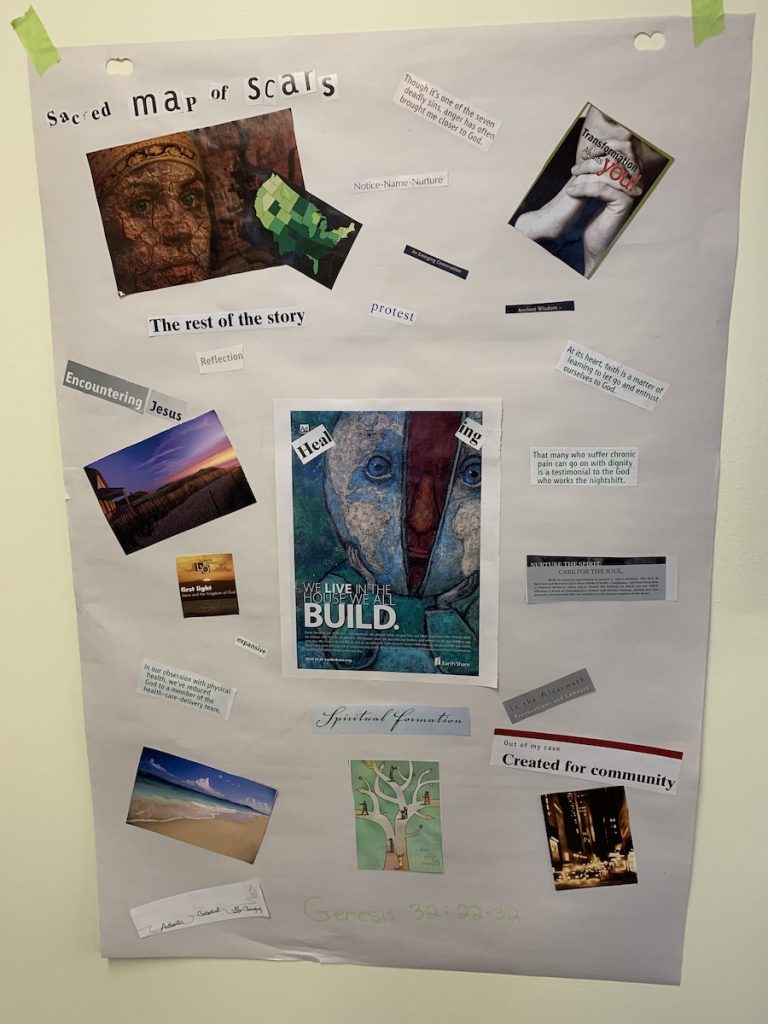Images from Health, Pain, and Trauma
From October 20 to 26, students gathered to explore spiritual care in times of illness, strategies for responding to trauma, approaches to mental health, respect for neurodiversity, and insights from disability theology. Students came from the East Coast, the West Coast, and various places in between. The circle included Diaconal Ministry students at various places in their program as well as a Mennonite pastor taking the circle as continuing studies during her sabbatical.
The learning circle was facilitated by CCS Program Staff Janet Ross and Scott Douglas with special guest facilitator Noelle Bowles. Noelle is an ordained minister with a UCC house church in Winnipeg as well as a social worker experienced in working with trauma in children.
Reflecting on disability theology had us thinking about the way that societal structures (both physical and ideological) “disable” people who might otherwise be perfectly able. In discussing pain and healing we considered theological understandings of pain that are useful in a pastoral care setting and ones that are problematic.
Noelle led the session on trauma, which included making clay models of the brain and discussing the role of various parts of the brain in trauma, as well as useful strategies for dealing with people who have “flipped their lid” (ie. switched into a non-rational fight/flight/freeze response to perceived threat). Our conversations about mental health and addictions urged us to thoughtful, compassionate responses, and our discussion of neurodiversity with CCS Program Staff Marcie Gibson (on Zoom from Berkeley, California) prompted us to think about ways of being open to people whose brains are wired in various ways. A panel discussion with Suzanne Robertson, Chris Salstrom, and Lesley Harrison about spiritual care in healthcare facilities led us to discuss the difference between congregational ministers and hospital chaplains.
A student-led session on balance and burn-out engaged us in a variety of activities around stress and self-care. And the session of healing and the bible asked, “Can you think of a biblical character who doesn’t have trauma?”
The circle is ending today. Thank you to all the students who made the circle, and we wish you safe travels home.





























